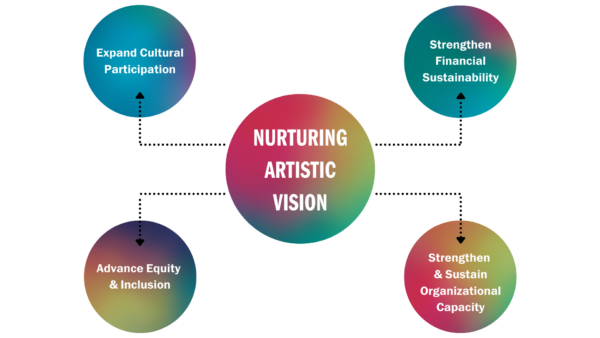Cabrillo Festival’s Commitment to Diversity, Equity, Inclusion, and Belonging
The Cabrillo Festival’s commitment to diversity, equity, inclusion, and belonging shapes everything we do. We believe that orchestral music reaches its greatest potential when we embrace artists from every walk of life, weaving together sounds and stories that reflect the expansiveness of our shared humanity.
By championing artists from diverse backgrounds, we unlock unprecedented artistic innovation, address historical imbalances in classical music, and create meaningful connections with broader audiences. Our festival stands at the forefront of expanding orchestral repertoire, ensuring that new music reflects the rich tapestry of perspectives that make our cultural landscape vibrant and relevant.
Through this commitment, we’re not just presenting concerts—we’re building a more inclusive future for orchestral music where everyone belongs.
WHAT WE’RE DOING ABOUT IT
We monitor, assess, and develop new goals for our work in these areas on an ongoing basis.
CLICK HERE TO FOLLOW OUR PROGRESS.
Cabrillo Festival is actively working to advance our commitment to DEIB (diversity, equity, inclusion, and belonging) by examining our practices and policies, addressing bias at individual and institutional levels, and increasing opportunities for participation and collaboration with artists, staff, board, community partnerships, and audiences of all cultural origins, abilities, and orientations. The work is ongoing, organic, conversational, and intentional. We maintain transparency and accountability as it evolves. We welcome your questions and thoughts, please feel free to contact us at any time.
A STRATEGIC APPROACH: DEIB BUILT INTO CABRILLO FESTIVAL’S STRATEGIC PLAN
Festival board and staff engaged in a rigorous process to create a Strategic Framework to guide the Festival’s work ahead. In the resulting framework, we committed to promoting DEIB as one of four priorities key to advancing our top priority to “Nurture Artistic Vision.”

Led by the DEIB Committee, Staff and Board members developed and use a DEIB Lens to evaluate all Festival decision–making, programming, production, partnership creation, hiring, and outreach to be sure all our work continues to value and implement our strategic goals of Diversity, Equity, Inclusion, and Belonging. The more we use this lens in every aspect of our work, the more its concepts become integral to all our thinking, work, and every aspect of the Festival.
